Impact 704 Academy: why does land use in Charlotte matter?
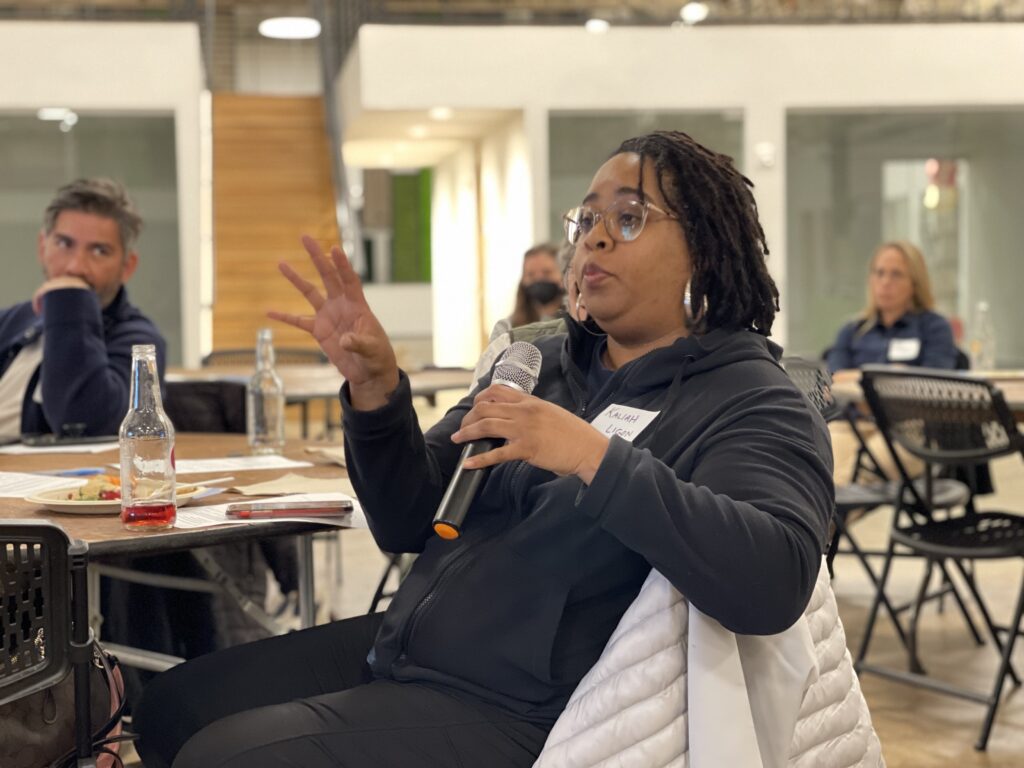
On Thursday evening, several dozen community members gathered for Sustain Charlotte’s Impact 704 Academy’s third and final session of 2022 to discuss local land-use challenges. This series of education and engagement programs focused on sustainable, equitable, and resilient urban development in the Charlotte area.
The evening began with refreshments and time for networking, followed by an introduction by Richard Cuebas, managing principal at Integra Architecture PLLC and Sustain Charlotte board member, who talked briefly about the opportunities and challenges our area’s population growth presents.
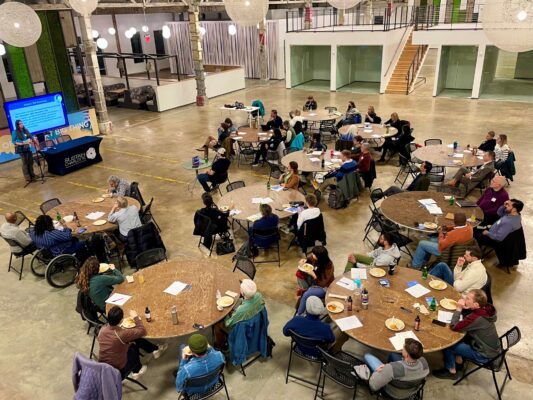
Sustain Charlotte Director of Engagement and Impact Meg Fencil also helped set the stage for the program by putting the importance of land use in the context of equity, the environment and the economy.
Kathy Cornett with Charlotte Planning Design & Development talked about ways our previously adopted land-use system has been inequitable and how the city of Charlotte’s recently adopted 2040 Comprehensive Plan and Unified Development Ordinance will address the problems we face today.
Cornett is the deputy project manager for the 2040 Plan, a living document that integrates community input and best practices for growth, development and capital investments. The plan addresses equity, transportation, quality of life, economic development, jobs, upward mobility, affordable housing, health, safety and sustainability.
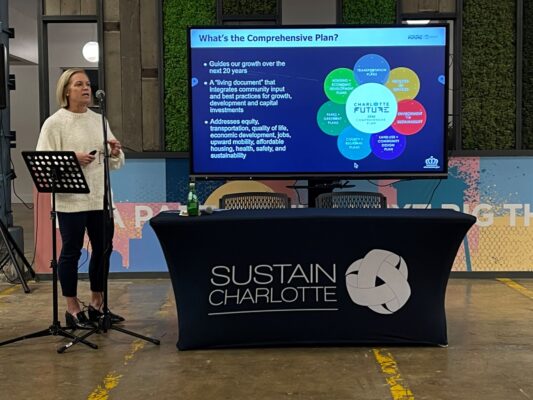
In the next 20 years, we’re expected to add 385,000 residents and 200,000 jobs. That poses a major question: Where will people live, work and play? The 2040 Plan provides an equitable growth framework, accounting for the greatest needs and issues and prioritizing limited resources. One of the most important elements of the plan is that it provides transparency and predictability in the planning process.
Cornett emphasized the collaboration between departments within Charlotte’s government to put the comprehensive plan into action and explained that the next step is to create strategic and action plans, community area plans and specific plans in tandem with the implementation of the Unified Development Ordinance.
Next, Katie Lloyd, a senior planner at Mecklenburg County Park and Recreation, provided an overview of the department’s work and current projects. She talked about why greenways are so important to the health and vitality of our community and the factors that contribute to the amount of time it takes to see greenways come to fruition, including land acquisition, permitting and budget constraints. Right now, there are 63 miles of completed greenway and another 14 miles under construction.
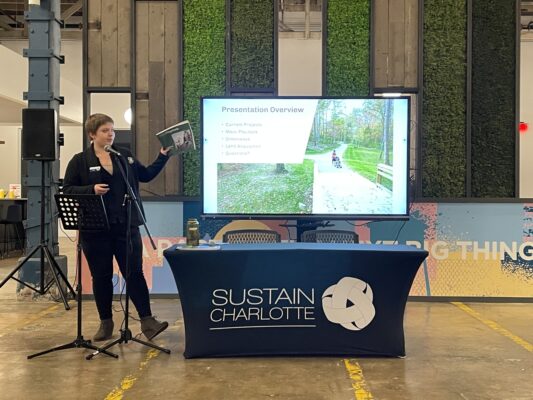
Lloyd also introduced the Meck Playbook, a comprehensive planning tool organized by four principles that guide how staff will make decisions about what the department does over the next 10 years. These principles include a commitment to equity, evolution and growth, more storytelling and movement beyond boundaries, and a focus on greenways and land acquisition.
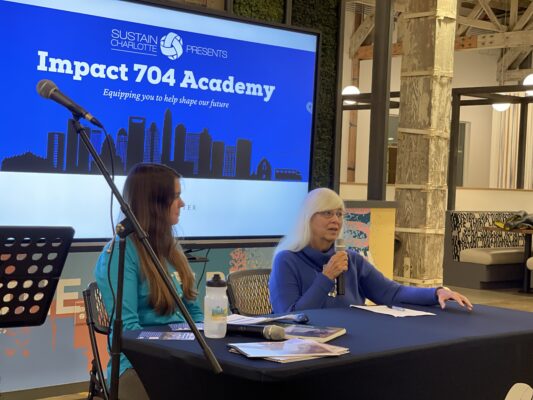
Finally, Nancy Carter, a former Charlotte City Council member and the current vice chair of the Mecklenburg Soil and Water Conservation District Board of Supervisors, served as a panelist, sharing her perspective on what effective advocacy looks like and answering questions from attendees.
Participants were then invited to engage in discussion and share their takeaways from the evening.
You can catch up on all the other two Impact 704 Academy sessions by reading these recaps and watching replays:
Watch video of session 3
Did you attend at least two of these sessions in person? Consider completing a Take Action mini project to earn an Impact 704 Academy completion certificate!
Thank you to everyone who attended our inaugural Impact 704 Academy series. We look forward to holding more of these programs in 2023.
Thanks for reading!
We are so grateful to Southminster for their generous support of the academy. As a nonprofit, community support is essential for us to keep doing what we do — including providing free articles like this. If you found this article helpful, please consider supporting Sustain Charlotte so we can continue advocating for a better future and working with residents, neighborhood organizations, government agencies, nonprofits, and businesses to solve the most critical challenges to Charlotte’s long-term social, economic, and environmental health.
Want to stay in the loop? Subscribe to our free, weekly newsletter and follow us on Twitter, Facebook, and Instagram.
